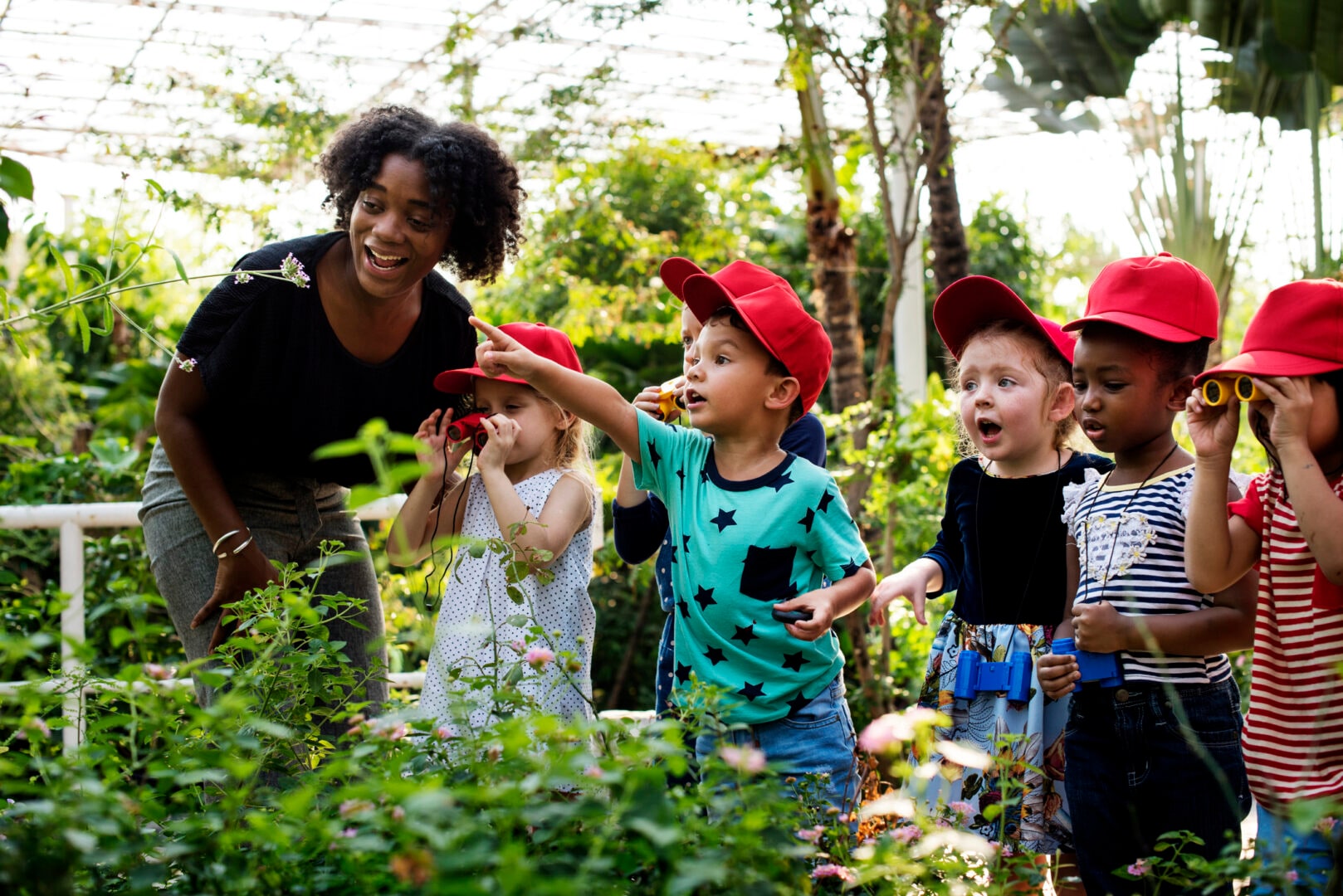School is out for the summer and the kids in your care have lots of energy and time. What’s a nanny to do? Band together to form a “nanny camp.”
A nanny camp is a group activity that is becoming more and more popular with nannies and families. Rather than each nanny having to brainstorm individual things to do with kids for the entire summer, they form a group and share the planning. For example, each nanny may be in charge of organizing activities for a specific day of the week. Then everyone meets at a predetermined location and enjoys the fun together.
Kelly Geres has worked for more than 20 years as a nanny and household manager in the Washington, D.C. area. With decades of experience, she thinks nanny camps can be “whatever the nanny or nannies wish it to be. It can be a weekly meetup or an organized calendar of events,” Geres says. “Nanny camp is for nannies to gather with their charges and learn, explore and have fun.”
Michelle Stecher, a nanny in the St. Louis area, agrees, and has planned a small-scale nanny camp with one of her friends. “We would meet at [the] pool at someone’s house, and the kids called it ‘Monday Fun-day.’ They loved it,” she says.
To start planning your own nanny camp, follow these eight steps:
1. Think small
“Limit the size,” Geres advises. “Say no more than 10 nannies and their charges. If your first camp is a success, be prepared for others wanting to join in the future.”
Not everyone will be able to show up to every event, but by keeping numbers low, the group will be more manageable.
2. Choose a leader
Depending on the size of the group, organization will only really happen if someone is in charge and overseeing the details. While you might be splitting the planning, someone has to make sure all your bases are covered. “One or two nannies should take on the task of being the leaders,” Geres advises.
It’s also important that the nannies and kids enjoy one another’s company. “I recommend getting with nannies that you can get along with and have the same qualities and beliefs,” Stecher says.
3. Begin planning early
“Nannies should be organized and have a plan before they start the camp,” Stecher says. “Make sure there is some input from the children, as well, if they are old enough. They like to know they can have some say in what they are doing for the summer.” She adds, “Most important, make sure to have fun as well because if you are not having fun, then that will rub off on the children.”
Begin with an email group and a shared Google spreadsheet specifically for nanny camp to organize ideas, make plans and schedule specific days.
“Gmail is great, and you can utilize the online calendar, create forms to sign up, collect emails for communications and reminders,” Geres says, adding that you should, “have a backup plan for rainy days, sick hosts, etc.”
4. Share the load
“Last summer we alternated weeks to plan,” Stecher says. “We come up with themes together and then plan activities on our own. That worked best for us, but it all depends on the nannies and activities they want to provide.”
Once activities are planned, share the calendar with the group and distribute sign-up forms with a detailed listing of each event, along with the cost (if any) and location, so nannies can determine if they’ll attend.
Geres advises, “Be sure to have sign-up deadlines!”
As the planning gets underway, also look to the future. You’ll need to get information out early about the activities, so the nannies can present it to the parents and make sure the suggestions are OK.
5. Cover your bases
Since there will be field trips and a lot of kids, keep paperwork organized. Forms to have on hand include:
- Sign-up forms.
- Permission slips.
- Authorization to seek medical treatment.
- Emergency contact information.
6. Get creative
As you become more familiar with the other nannies, expand what you’re doing. Think of fun ideas like a group name, matching T-shirts or camp bags for attendees. This is a great way to encourage camaraderie among the kids and nannies.
Also, look to the parents. “Maybe someone knows someone and can get special passes or permission for a hard-to-get-into venue,” Geres adds.
7. Keep costs down
Activities can start with things around the house. Parents may help out with any supplies you need, but less is more — concentrate on the warm weather and tap into kid’s imagination.
Get inspired: 101 fun things to do with kids this summer
Go out into the community and find free venues. Do potluck picnics at a park, where all the families and nannies contribute food. See if local fire departments, police departments, zoos and children’s theaters have inexpensive activities for kids.
“Create relationships with the vendors,” Geres advises. “Ask for group rates.”
And don’t forget: “Since this is a work-related activity, parents should assume the cost of the camp for the nanny and the child/children,” says Geres.
It also makes sense to put together a small fund in the very beginning for things like administrative costs and group snacks. “Determine a cost to participate in the camp — usually around $10 to $20 per family [nanny/child/children] — and then vary the events so some are free and some are a cost that is additional and upfront,” Geres says.
8. Have fun
Be creative with camp activities, and plan outings you think kids of all ages and interests will enjoy. But know that, no matter what, you won’t please everyone every day. Nanny camps involve lots of compromise.
When Geres participated in a nanny camp, their group did trips to a local firehouse, animal sanctuary (including donating of supplies), puppet theater, zoo and airport to see the planes up close.
Treat each outing as an adventure. What can kids learn from it and how can you make it as fun and enjoyable as possible?
Nanny camps are wonderful for both the kids and the nannies, but, as Geres reminds, “Don’t get so bogged down in the organization of it that you don’t enjoy it yourself.”
And while nannies are splitting the workload, it’s truly the kids who reap the benefits: socialization, education, enrichment and — most importantly — a summer full of fun and friends.





